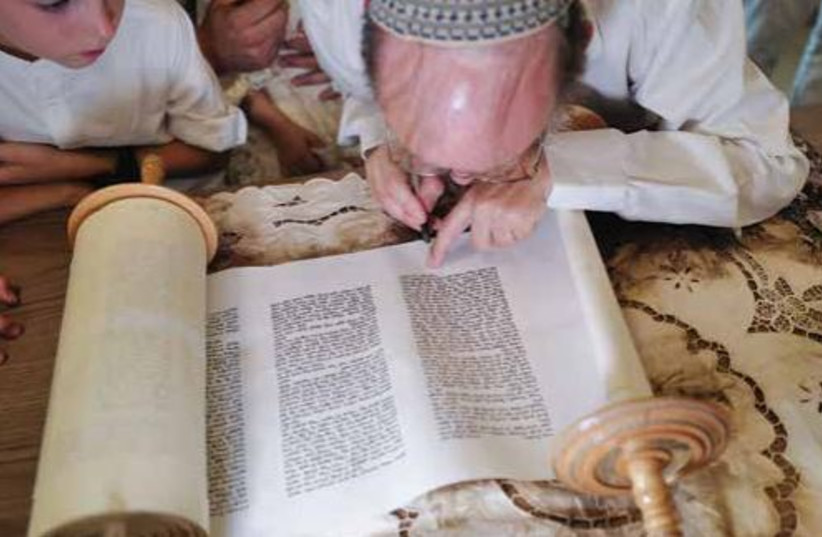The horrific massacres of October 7 shocked the world and opened up the Jewish people’s eyes to a disturbing new reality. As author David Hazony recently opined in “The War Against the Jews” in SAPIR journal: a global antisemitic movement has suddenly appeared. “The war is not only against Israel,” he said, “it is against global Jewry.”
Hazony is right. Hundreds of thousands of people are marching through capital cities around the world, calling for the destruction of our homeland and our people. College campuses have become hotbeds of hatred. According to a recent study conducted by the Institute for the Study of Global Antisemitism and Policy (ISGAP), antisemitic incidents in US colleges and universities have gone up more than 300% since the beginning of October.
In response, global Jewry has awoken in ways I have not seen before.
American Jewry is witnessing an ongoing spiritual awakening. People who have not participated in Jewish life or stepped foot into a synagogue in decades have suddenly shown up. Jewish involvement, engagement, and philanthropic giving have all surged following last month’s attack. The Jewish spark has been ignited.
However, the challenge is what happens next. In Hazony’s article, he laid out an 8-point plan for “winning” the global war on Jews. Reading almost like a military strategy, the manifesto lays out steps such as to protect Jews everywhere; recognize our enemies; and recognize our own power. He also advocates for shifting the balance of fear, demanding our rights, and adjusting our philanthropic priorities. It’s a detailed plan and I’d recommend reading it through.

We must protect young Jews, but we must also nourish their souls
To win the war against Jews, it’s imperative that we not only protect young people against external threats to their Jewishness but also fan the flames of their Jewish soul. The time-tested way to do this is through Jewish education, the kind that will set them and their children up for rich Jewish lives for generations to come.
While I agree with most of Hazony’s points, they are largely if not exclusively focused on protecting Jews from external threats. I would add one critical point to his list which focuses on strengthening Judaism from within: Prioritize Jewish education and learning.
By promoting specifically Jewish education, we instill in our young people a deep love for being Jewish, one that can withstand the winds of hatred that will attempt to extinguish us.
Debating antisemites on TV and social media is important. Protests are needed. Legislative attacks on BDS are effective. However, more than anything we need young Jews with a visceral love of their people, their Judaism, and their heritage. It is these young Jews who will be our warriors, leaders, and philanthropists of the future.
Jewish learning, Israel immersion, and relatable, authentic Jewish experiences are what create an identity that is not shaped by antisemitism, but rather by a deep love and respect for who we are, what we cherish, and what is truly Jewish. It is these values, experiences, and memories that will shape a proud Jew who cares and will make a difference.
Students often enter our program at the Mayanot Institute in Jerusalem with little in the way of Jewish knowledge and experience and leave with a powerful commitment to Jewish life. Countless young people have walked in our doors scarcely familiar with the aleph-bet, and return home as knowledgeable, proud, and committed Jews.
That love is created not only because they’re living in the holy city of Jerusalem – savoring the sights, sounds, and tastes of our homeland. It is created via immersion in our Jewish practice and sacred texts, through a familiarity with the concepts and characters found in the Tanach, the Talmud, and other Jewish texts.
Last month in the midst of the war, a group of students who had arrived before the High Holy Days stayed up late into the night meticulously hand-tying tzitzit knots onto ritual garments for soldiers in the IDF. My sons, who are serving in active duty in the IDF, told me that on their bases soldiers were requesting tzitzit even though most of the soldiers didn’t consider themselves particularly religious.
The students, who themselves were newcomers to the basics of Judaism, had recently begun learning the laws of tzitzit when they leaped into action. Not only were they putting their Jewish knowledge to use but actively helping their fellow Jews increase their practice as well.
In a similar vein, a Mayanot alum at Cornell University initiated a grassroots tefillin (phylacteries) campaign in which thousands of young men have begun putting on tefillin each day and uploading selfies to WhatsApp. These young people are ambassadors of light, spreading Jewish values in a world that sorely needs it.
By prioritizing authentic and immersive Jewish education for our young people, we will ensure that the torch of Jewish pride and resilience is passed down for generations to come. This is how we will win the war on global Jewry and build a robust Jewish future.
The writer is the dean and executive director of the Mayanot Institute of Jewish Studies in Jerusalem. For more information, please visit mayanot.edu.
